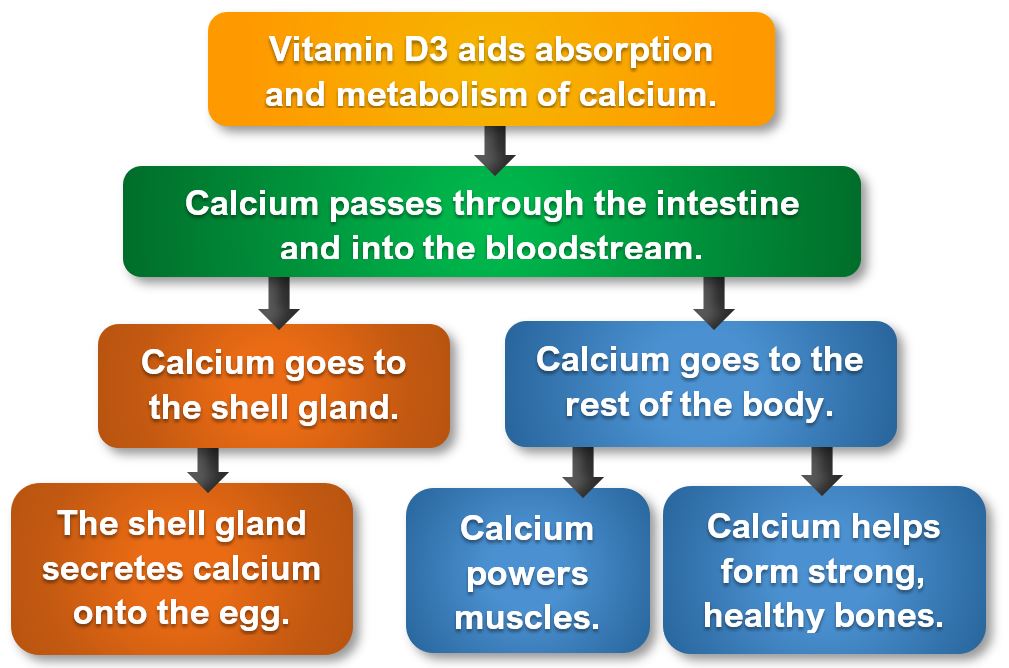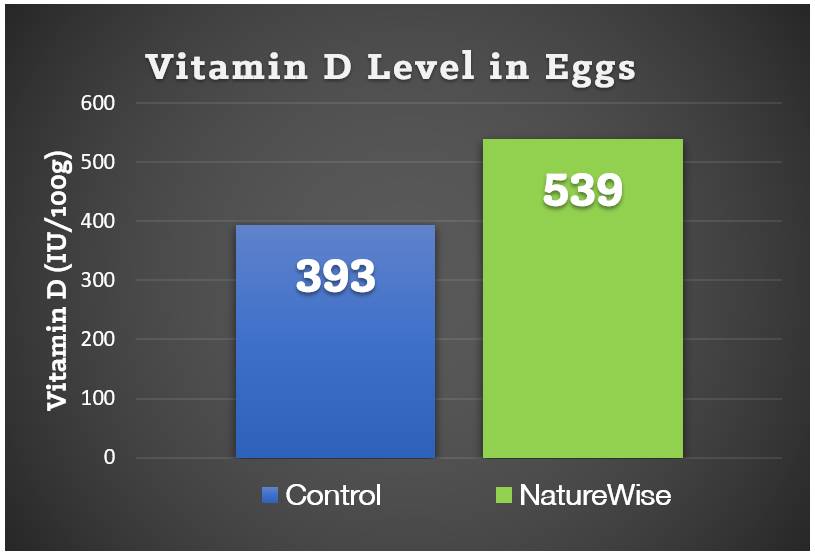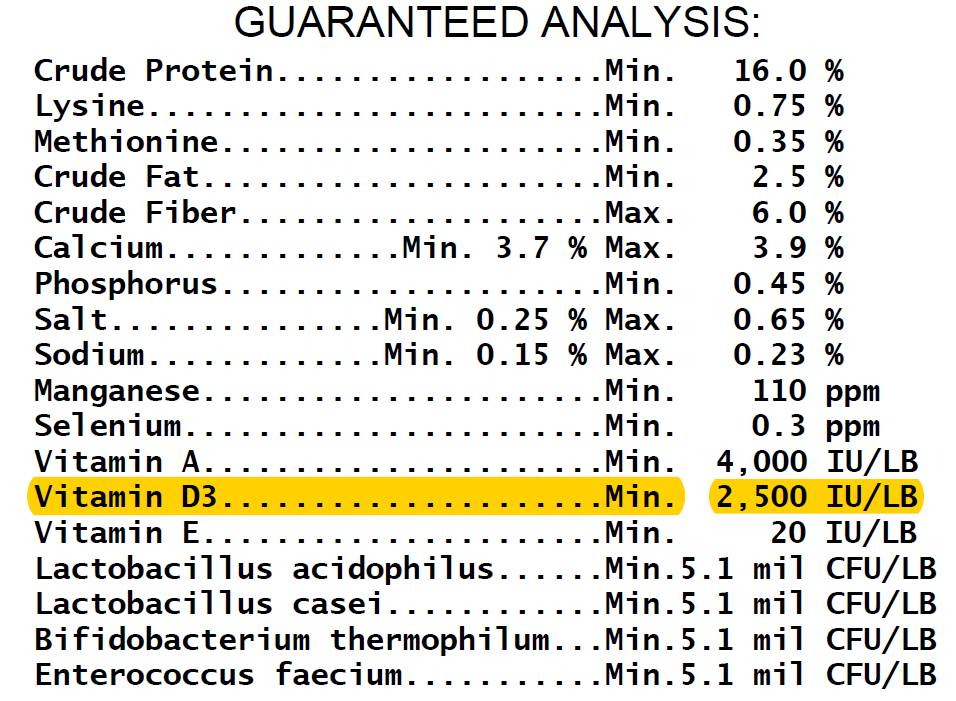NatureWise Feeds with Vitamin D for Healthy, Strong-Shelled Eggs

At Cargill we’re working hard to help your hens live their best lives and lay great eggs! Our NatureWise feeds now contain more Vitamin D3. What is this vitamin, and why is it important for your birds and you?
What is Vitamin D?
Vitamin D is a fat-soluble nutrient that helps the body absorb calcium. It also aids in muscle movement, strengthens the immune system, and improves nerve function. The two main forms of Vitamin D are
- Vitamin D2, which comes mainly from plant sources, and
- Vitamin D3, which is produced by animals (including humans) in response to sunlight.
Although the liver can convert both of these into forms that the body can use, it processes Vitamin D3 more easily. That’s why we’ve chosen Vitamin D3 for our NatureWise feeds.
Human adults should get 800 IUs (20 micrograms) of Vitamin D per day, which is the same amount found in 1 Tbsp of cod liver oil or 3 ounces of farmed trout. Other natural sources of this important vitamin include salmon, red meat, liver, canned tuna, and egg yolks. Because egg yolks are a source of Vitamin D, let’s look at how this vitamin affects your chickens.
How Your Hens Use Calcium and Vitamin D
Just like humans, hens need Vitamin D, too, and their bodies use it in similar ways. In a chicken’s body, Vitamin D does the following:
- Aids absorption and metabolism of calcium
- Improves quality of bones and eggshell
- Helps calcium move quickly through the intestinal wall into the bloodstream
- Decreases early embryo death by up to 30%
The blood carries calcium to the shell gland, which secretes the calcium onto the outer membrane of an egg to create the shell. The blood also transports calcium to the rest of the body, where it contributes to bone health and helps power the muscles, including those that expel eggs.
Appropriate levels of Vitamin D can improve the hardness of eggshells, resulting in less breakage and a longer shelf life for your eggs. In addition, your older hens can benefit from Vitamin D. As hens age, they lay eggs with thinner shells. A little boost from Vitamin D can result in thicker, more healthy shells.
Chickens and Vitamin D Deficiency
So what happens if hens don’t get enough Vitamin D in their diet? A deficiency in this nutrient can reduce calcium absorption, which results in the following:
- Brittle bones: Hens without enough calcium pull the mineral from their bones, reducing bone strength.
- Thin-shelled eggs: A Vitamin D deficiency can result in less calcium in the eggshells.
- Higher feed consumption: Lower levels of calcium in feed lead hens to eat more, resulting in higher feed costs overall.
- Mineral-deficient embryos: Hens fed a low Vitamin D3 diet produce embryos with low levels of calcium and phosphate.
Because of the close link between Vitamin D and calcium, your birds’ diet should include healthy levels of both of these nutrients.
Find Vitamin D on a Feed Label
You can easily compare the levels of Vitamin D in different feeds. Commercial layer feeds have a Guaranteed Analysis, like the one pictured below, on the back of the bag. Locate the amount of Vitamin D and compare NatureWise to other brands. You’ll find that the NatureWise has 2500 IUs of Vitamin D3 per pound.
Get More Vitamin D! Feed Your Hens NatureWise Feeds
If you’re feeding your hens our NatureWise line, eating their eggs can increase your own levels of Vitamin D. In a recent study conducted by Cargill, eggs from hens fed the improved NatureWise 16% Layer feed contained 37% more Vitamin D than hens fed the standard layer feed as a control.

If you are a backyard poultry owner who values healthy eggs with optimal Vitamin D levels and strong shells, the NatureWise layer feeds are the best choice for your chickens. Learn more about our feeds with added vitamin D3 at the following links:
Explore the world of backyard chicken keeping with confidence by exploring Nutrena’s range of high-quality poultry products. From specialized feeds that promote optimal egg production to innovative solutions for coop cleanliness and bird well-being, Nutrena has your flock’s needs covered. Take your chicken keeping to the next level and ensure happy, healthy hens. Learn more about Nutrena’s poultry products now and give your feathered friends the best care they deserve.

